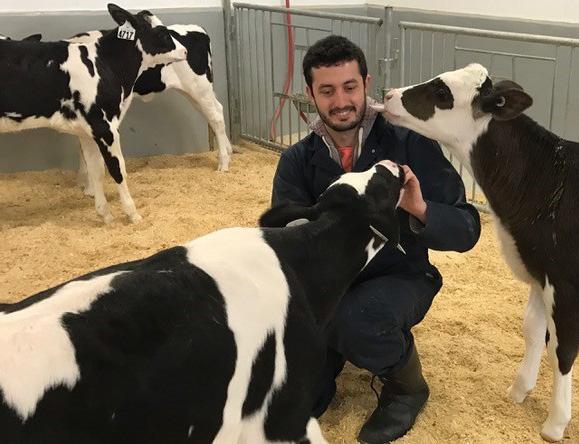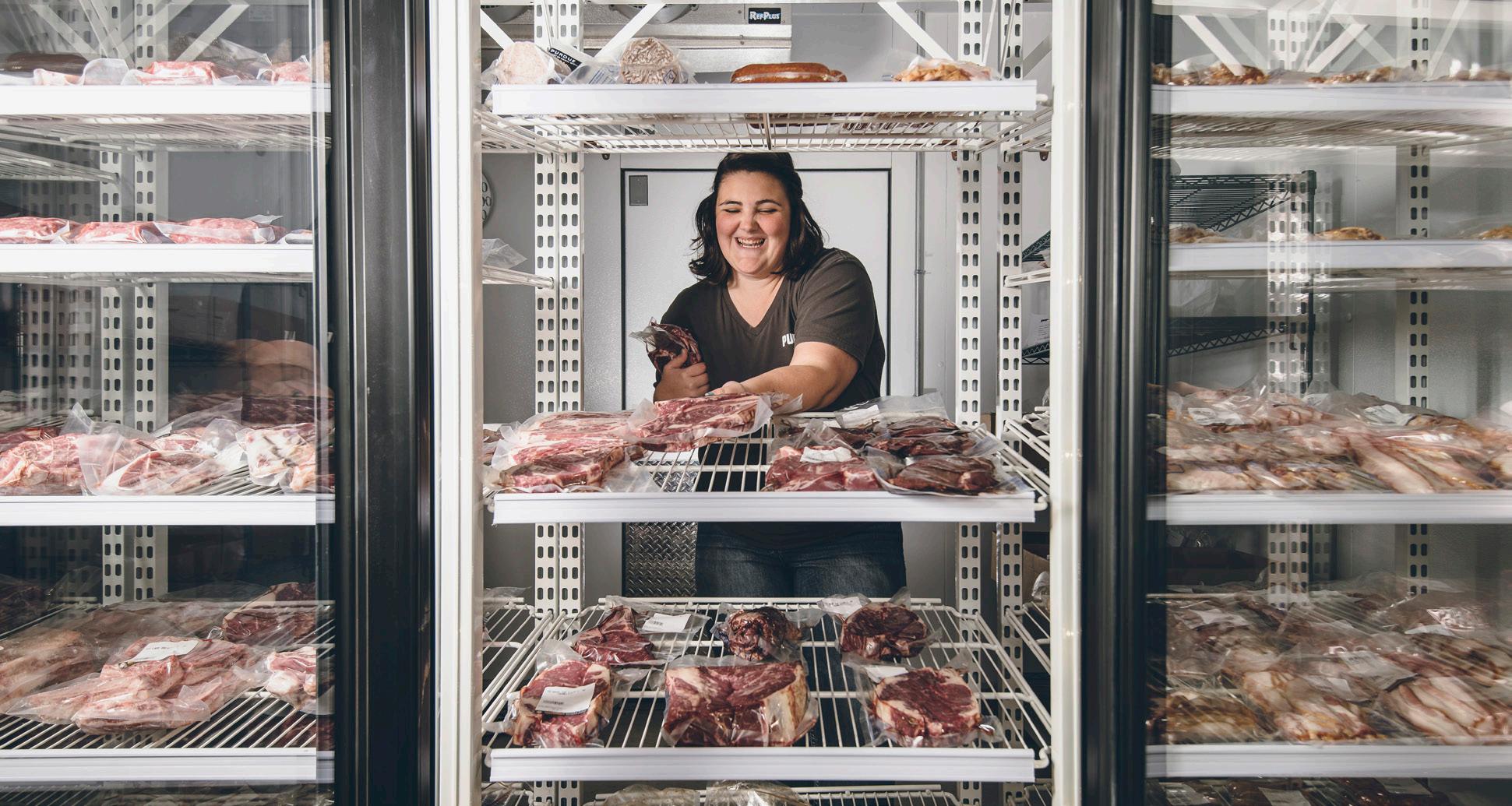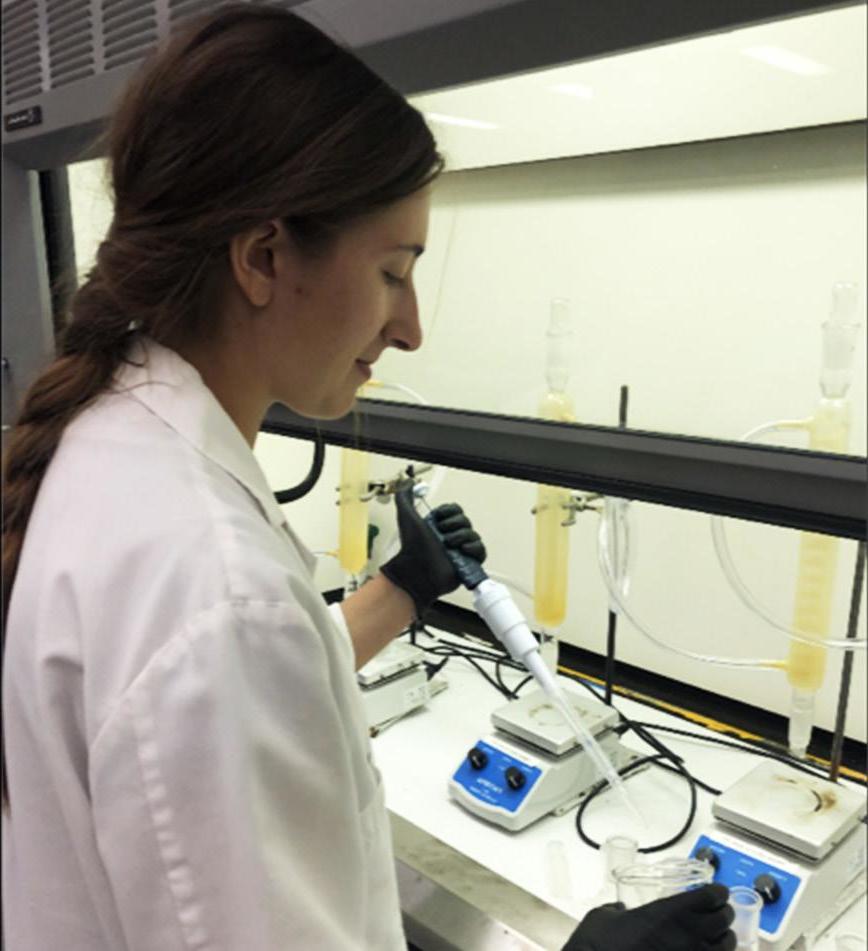EXTENSIONPROFILES
JACKIEBOERMAN DAIRY
MARISAERASMUS WELFARE
COLLABORATIONKEYTO SUCCESSFORBOERMAN
BRIDGINGTHEGAPBETWEEN ANIMALPRODUCTIONANDANIMALWELFARE
Jackie Boerman, assistant professor of animal sciences, is no stranger to the dairy industry with experience and knowledge gained from dairies across the United States and the world. “I really enjoy developing ideas, executing them and then learning throughout the entire process to better understand the dairy cow,” says Boerman. Boerman concentrates her Purdue Extension efforts in three areas — commercial farm work related to nutrition and management, applied research conducted at ASREC and better utilization of farm data. She values collaboration with researchers and Extension personnel in different departments at the university and outside of Purdue. Boerman and graduate student Tabitha (Steckler) Hurst recently authored the Purdue Extension publication “Lung Ultrasound Scoring: A Way to Visually Detect Lung Damage.” Respiratory disease is a costly leading cause of illness in dairy calves, but can be difficult to diagnose on-farm. Steckler and Boerman took new lung scanning technology to an Indiana commercial dairy farm to study how lung damage affects calf’s growth and productivity. While in the early stages of development, Boerman is looking forward to a new Extension research project that will integrate multiple data sources generated on farms to better predict health, productivity and well-being of dairy cattle. “We have to convey the things that we are learning at Purdue University through our research and get that information in the toolbox of people who are on farm, assisting or making the daily management decisions.”
“Poultry are the most numerous of farm animals produced worldwide. However, concern for poultry welfare falls below that of other farm animals,” says Marisa Erasmus, assistant professor of animal sciences. Erasmus addresses this disparity between poultry production and animal welfare in her research and development of Purdue Extension programs. Her current extension programs focus on three overarching problems: behavioral and welfare issues of poultry, using animal-based indicators to evaluate animal welfare and providing educational resources so consumers can learn about animal welfare. As consumers demand more transparency about food production, the agriculture industry has an opportunity to explain how food is grown using sustainable and ethical methods. Erasmus embodies this transparency in her engagement with consumers through an animal welfare educational exhibit that has been featured at the Indiana State Fair and Purdue’s Spring Fest. The exhibit shows consumers how producers care for common farm animals and the importance of animal well-being for animal production. After visiting the exhibit, consumers reported increased knowledge of animal welfare and planned to use the information in their daily lives. For more information about Purdue Extension programs led by Erasmus: Erasmus Lab Website: ag.purdue.edu/ansc/erasmus/ Erasmus Lab Email: aw@purdue.edu
10
PURDUEUNIVERSITY







